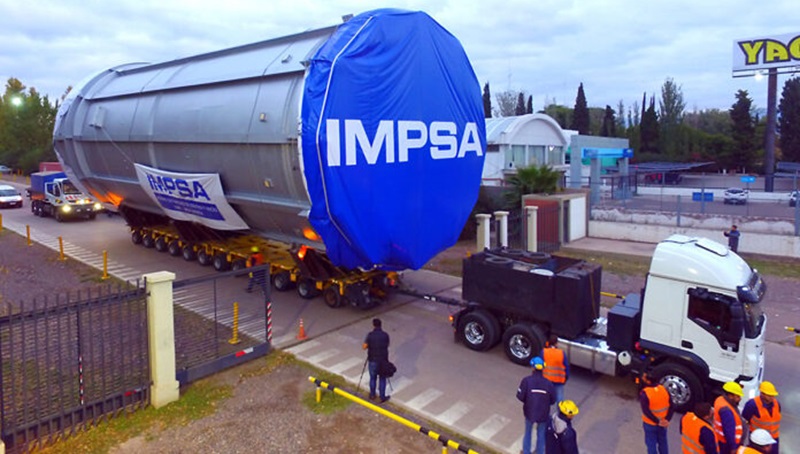
“We privatized IMPSA” Luis Caputo celebrated this Wednesday on the social network at low cost the generation of renewable energy, thanks to its production of inputs and commissioning of hydroelectric dams or wind farms. But the Government’s priority is zero deficit to pay the fraudulent foreign debt and the profits of large multinationals.
IMPSA (Industrias Metalúrgicas Pescarmona SA) was founded in 1907 in Mendoza and was among the leading companies in the development of technology for energy generation. It has in its history emblematic projects in the hydroelectric, nuclear and heavy infrastructure fields. However, its owners always took advantage of the State to increase their margins and in recent decades received millions in subsidies.
In 2021, Alberto Fernández’s government rescued IMPSA from bankruptcy by acquiring 63.7% of the shares and paid the company’s debts with public funds. This measure was presented as a way to preserve its strategic importance, but the lack of investment and abandonment by the authorities did not resolve the debt crisis that deepened with the change of government. Now, under the administration of Javier Milei, the sale of the company to ARC Energy, an American company, has been completed for only 27 million dollars.
The sale of IMPSA: a first step of the privatization plan
The government justified the privatization by claiming that the operation will reduce the fiscal deficit and free the State from the financial burden of maintaining the company. However, this argument is misleading, IMPSA has the capacity to be self-sustaining and is also an important supplier for public works. It is true that Milei has frozen investment in infrastructure, but this decision that deepens the country’s backwardness is only worsened by losing an organization capable of manufacturing supplies that are difficult to obtain worldwide.
Furthermore, privatization was not carried out with a competitive or transparent process. ARC Energy was the only bidder in the tender, which allowed the American company to impose advantageous conditions to complete the acquisition.
The IMPSA workers, gathered under the agreement of the Metallurgical Workers’ Union, and in ASIMRA, have been receiving their salaries without receiving the increases agreed upon in joint ventures. Last December, the workers organized assemblies and protests because in addition to the loss due to inflation, they had withheld half of their fortnightly salary. Its organizational capacity shows that it would not be at all impossible to establish its operation with state ownership and under the control of its workers.
A government at the service of big capital
The sale of IMPSA is not an isolated case within the economic policies of the Milei government. In his desire to reduce the role of the State, Milei has promoted a privatization program that includes strategic sectors such as transportation, energy and infrastructure. Aerolíneas Argentinas, the hydroelectric dams and the Paraná-Paraguay Waterway are in the crosshairs of his Menemist plans.
In the case of Aerolíneas Argentinas, the intention to privatize it represents a direct attack on national sovereignty and the right to transportation for millions of Argentines. This plan recalls the disastrous results of the privatizations of the 90s, when the airline was reduced to a minimum under private management and had to be rescued by the State in 2008. The hydroelectric dams, whose concessions to private companies have expired, also are being offered to the highest bidder, perpetuating the handing over of renewable energy generation to foreign interests.
Profits for a few or planning the economy for the vast majority?
Faced with this panorama of adjustment and privatization, the Left Front has denounced Milei’s policies as a looting of the country for the benefit of large corporations and international capital. It is necessary to fight for alternative solutions based on the defense of employment, energy sovereignty and workers’ control over strategic resources.
The Left Front proposes that strategic companies such as IMPSA, Aerolíneas Argentinas and hydroelectric dams be managed democratically by their workers and communities. The fight against privatization is not only an economic issue, but also a political and social one. It is a fight for the right to a sovereign country, where natural common goods and strategic companies are at the service of the great majority and not a privileged minority.
Source: www.laizquierdadiario.com

